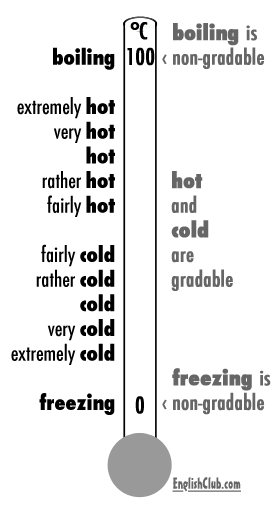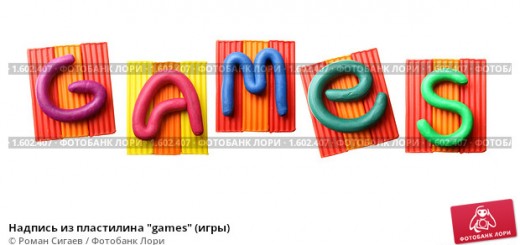Adjective Gradability
Gradable Adjectives
A gradable adjective can be used with “grading adverbs” that vary the adjective’s grade or intensity. Look at these examples:
| grading adverbs a little, dreadfully, extremely, fairly, hugely, immensely, intensely, rather, reasonably, slightly, unusually, very |
+ | gradable adjectives angry, big, busy, clever, cold, deep, fast, friendly, good, happy, high, hot, important, long, popular, rich, strong, tall, warm, weak, young |
“Gradable adjectives” are also called “qualitative adjectives”. “Grading adverbs” are also called “submodifiers”.
A gradable adjective can also have comparative and superlative forms:
- big, bigger, the biggest
- hot, hotter, the hottest
- important, more important, the most important
Look at these example sentences:
- My teacher was very happy with my homework.
- That website is reasonably popular. But this one is more popular.
- He said that France was a little cold and Denmark was rather cold. But Sweden wasthe coldest.

Adjective Gradability
Adjectives describe qualities (characteristics) of nouns. Some qualities can vary in intensity or “grade”, for example:
- rather hot, hot, very hot; hot, hotter, the hottest
The adjective hot is gradable.
Other qualities cannot vary in intensity or grade because they are:
- extremes (for example: freezing)
- absolutes (for example: dead)
- classifying (for example: nuclear)
The adjectives freezing, dead and nuclear are non-gradable.



